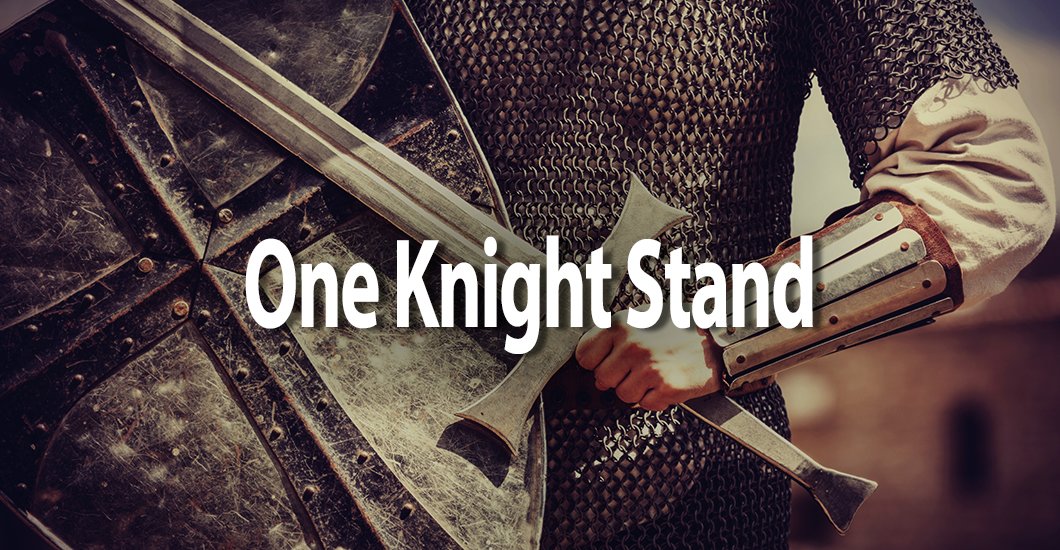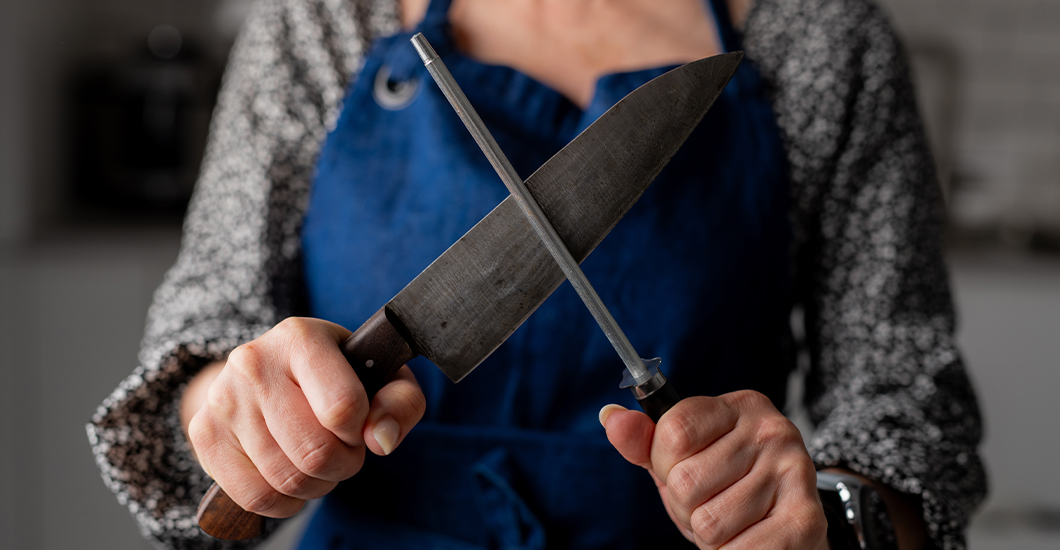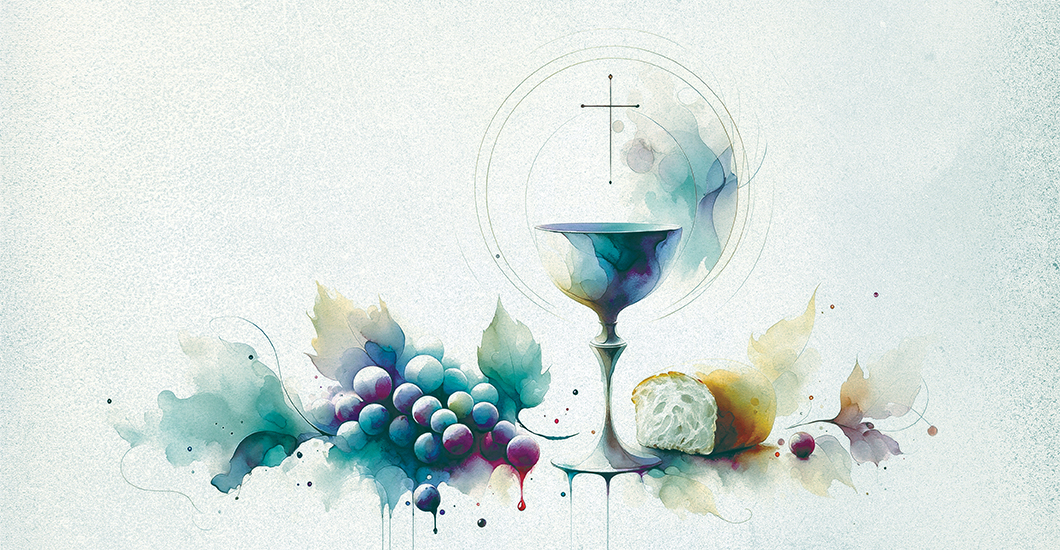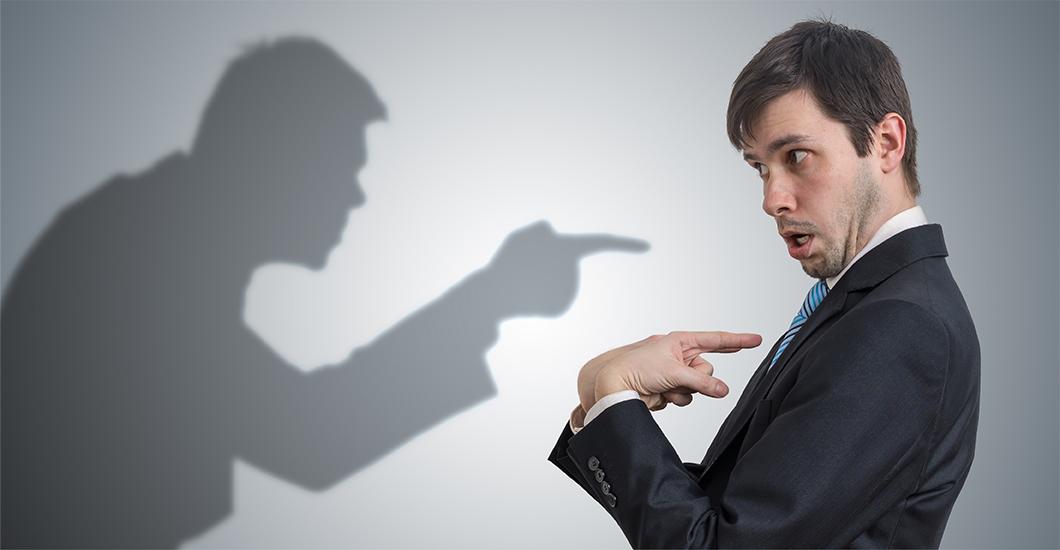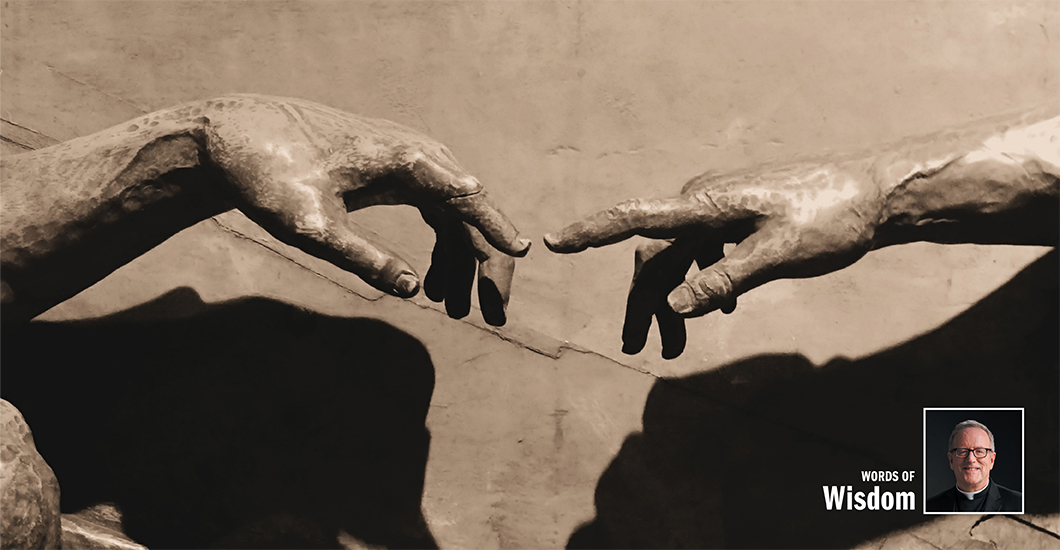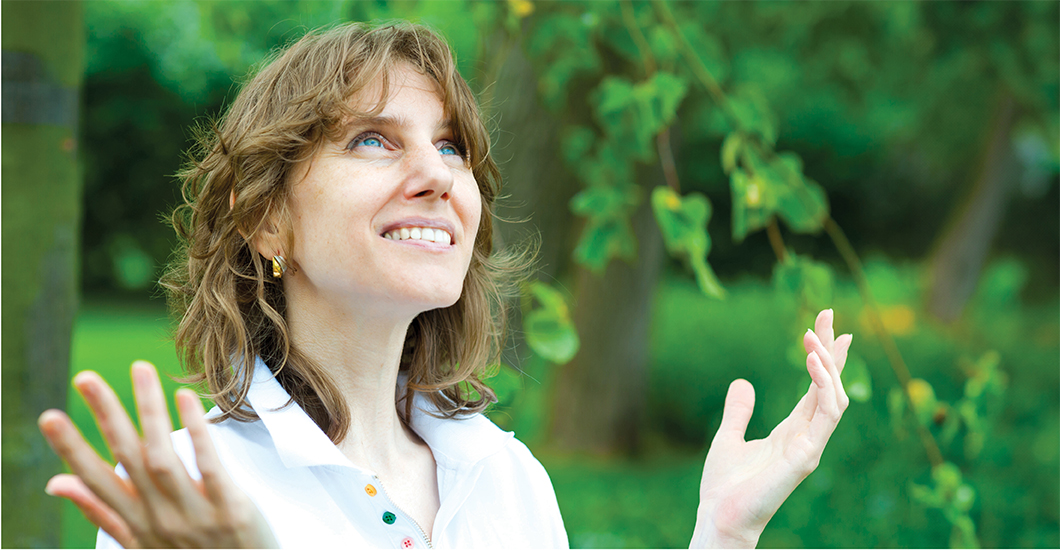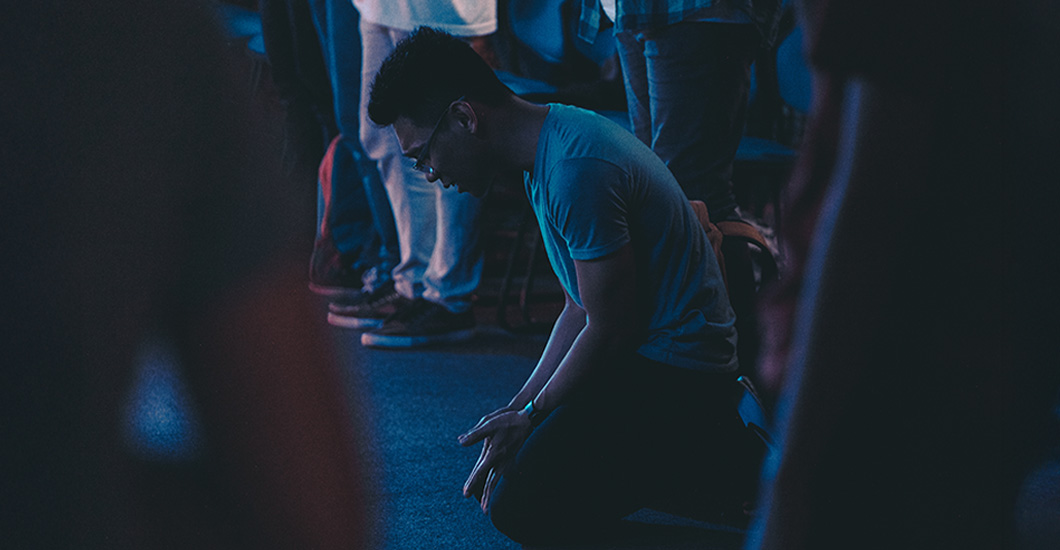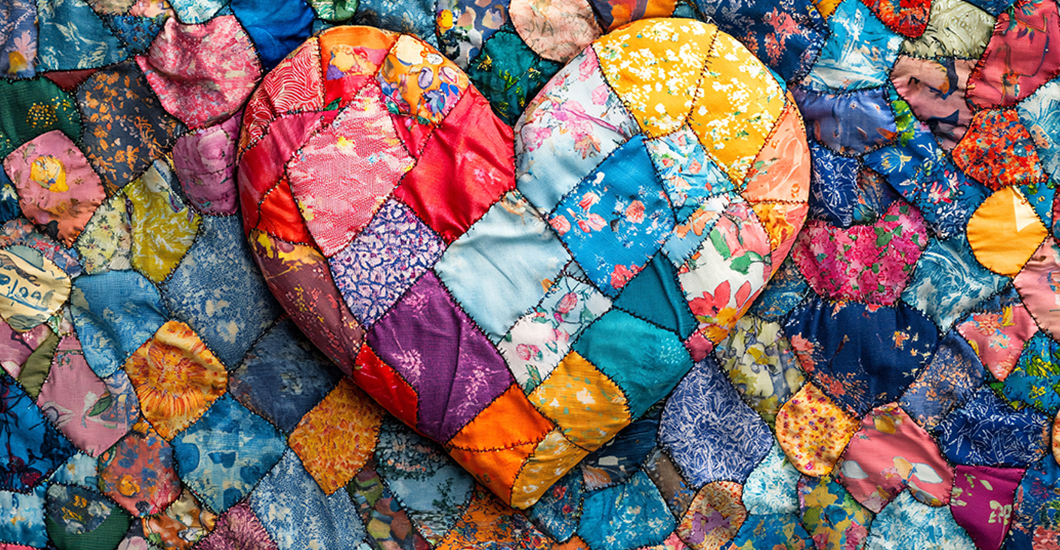Trending Articles
One Knight Stand
If chivalry is not already dead, then at the very least, it seems to have passed its expiration date. Gone are the days of the chivalrous knight in his shining armor—a knight who would slay any number of dragons to rescue a beautiful princess. A knight who would pull out a throne for the princess to sit upon during the following banquet, pay the full bill for said banquet and then, at the end of the evening, walk said princess back to the portcullis of her own castle.
For many men, their reluctance to display chivalrous behavior is linked to a concern that women now view such acts as embarrassing or even insulting. The notion that chivalry is sexist is a belief subscribed to in many branches of feminism. Chivalry, it is claimed, relies on a gendered premise that women are weak and need protection. Thus, while chivalry might be benevolent (at best), ultimately it just puts down women.
In part, I think this problem with chivalry stems from a reluctance to actively recognize the differences that exist between the sexes. It is argued that chivalry is unnecessary—because if men and women are equal then there should be no substantial difference between the way men behave toward women and the way women behave toward men. This kind of thinking confuses equality with sameness. In reality, while men and women are certainly equal in dignity, we are not the same.
One of the most obvious differences is physical strength. A quick glance at a Belarussian female power lifter would reveal that strength is not the exclusive domain of men, but even so this trait has always been associated with masculinity. Strength has been an important aspect of chivalry since the middle ages, when knights would swear an oath to defend to their uttermost the weak, the orphan, the widow and the oppressed. Chivalry was fundamentally about men using their strength to serve and protect others.
To be sure, this argument would be a lot easier to make if I was a sixth-century knight driving off hordes of invaders who sought to burn and pillage. These days, there are very few women out there who actually require a man’s physical strength to get a door open or pull out a chair. But there is a deeper symbolic significance to these acts.
At this point, I want to share a story from the life of Samuel Proctor, a 20th-century Christian minister. One day, Proctor was in an elevator and a young woman entered, so he tipped his hat to her. She was offended and responded by asking, “What is that supposed to mean?” to which Proctor replied, “Madame, by tipping my hat I was telling you several things: that I would not harm you in any way; that if someone came into this elevator and threatened you, I would defend you; that if you fell ill, I would tend to you and if necessary carry you to safety. I was telling you that even though I am a man and physically stronger than you, I will treat you with both respect and solicitude. But frankly, Madame, it would have taken too much time to tell you all of that so, instead, I just tipped my hat.
Ultimately, chivalry is not about performing certain courteous acts; it is about a mindset of respect. A man should not perform chivalrous acts for women because he thinks “they can’t do it themselves.” He should perform such acts out of love and service. This point is particularly important as we seek to address our culture’s huge problem with the objectification of women. Chivalry places a very special emphasis on the way men treat their female counterparts. The chivalrous man is called to uphold the value of women as human persons, not as objects for his pleasure.
To all of my female readers, I think that one of the saddest aspects of the disrespectful behavior some men exhibit toward the opposite sex is that far too many women tolerate it. In a society where this tolerance exists, alongside a widespread male perception that chivalrous acts are offensive, it is not surprising that the way men relate to women has degenerated.
However, a woman who sets her standards high will be far more likely to attract men who are willing to meet them. You deserve chivalrous men in your life, men who will respect you and authentically care for you. Do not give up on that. Do not settle for less.
And to the male readers: Saint Josemaria Escriva once said, “There is a need for a crusade of manliness and purity to counteract and nullify the savage work of those who think man is a beast. And that crusade is your work.”
Live a life that demonstrates chivalry. Make your stand.
Samuel Brebner is an under-graduate, studying theology and law at the University of Auckland. He lives in New Zealand, loves to surf and hopes to challenge youth to be everything God created them to be. Sam works part time with Real Talk, a Catholic organization that speaks in high schools on the topics of sex, relationships and personal identity. Originally published in www.chastityproject.com. Reprinted with permission.
Related Articles
When Andrea Acutis arranged a pilgrimage to Jerusalem, he thought that his son would be excited. Carlo was keen on going to daily Mass and reciting his prayers, so his reply came as a surprise: "I prefer to stay in Milan … Since Jesus remains with us always, in the Consecrated Host, what need is there to make a pilgrimage to Jerusalem to visit the places where He lived 2000 years ago? Instead, tabernacles ought to be visited with the same devotion!" Andrea was struck by this great devotion that his son cherished for the Eucharist. Carlo was born in 1991, the year the World Wide Web was invented. The little genius walked when he was just four months old, and started reading and writing at the age of three. The world would’ve looked at his intellect and dreamt of a bright future but the Divine had different plans. Combining his love for the Eucharist and technology, he left the world a great legacy of a record of Eucharistic miracles from across the world. He began the collection in 2002 when he was just 11 years old and completed it a year before he succumbed to leukemia. This young computer geek, at such a young age, even built a website (carloacutis.com), a lasting record, with all the collected information. The Eucharistic exhibition he pioneered was held in five continents. Ever since, many miracles have been reported. On his website, he has written the lasting mission of his life on Earth: "The more Eucharist we receive, the more we will become like Jesus, so that on this Earth, we will have a foretaste of Heaven." This Italian teenage designer and computer whiz is soon to become Saint Carlo Acutis. Widely known as the first millennial patron of the internet, Blessed Carlo continues to draw millions of youngsters to the love of Jesus in the Eucharist.
By: Shalom Tidings
MoreWhat happens to your soul when you have an unexpected encounter…? I have a fond childhood memory about Eucharistic Adoration which is very dear to my heart. I participated in the rite of exposition and benediction of the Blessed Sacrament as a child, and I was mesmerized by the Eucharistic Jesus in a majestic monstrance with incense rising up towards Him. As the priest worshipped God by swinging the censer, incense rose towards the Eucharist and the whole congregation sang together, “O Sacrament Most Holy, O Sacrament Divine, All praise and all thanksgiving, Be every moment Thine.” I longed to touch the censer myself and gently push it forward so I could cause the incense to rise up to the Lord Jesus. The priest gestured to me not to touch the censer and I turned my attention to the incense smoke that rose up along with my heart and eyes to the Lord God fully present in the Eucharist. This participation in Eucharistic Adoration as a child filled my soul with so much beauty—the smell of the incense, the entire congregation singing in unison, and the vision of the Eucharistic Lord being worshipped—my senses were thoroughly satisfied, leaving me longing for the experience again. Caught Again I admit with much sadness however that several years afterwards, as a teenager—when I had more opportunities—I gave into hesitation and stayed away from Eucharistic Adoration, depriving myself of such great beauty and source of sanctity. My reason for this seems to me very silly now. I thought I had to continuously pray for the entire one hour of Eucharistic Adoration and it seemed like a very long time. How many of us today hesitate to go to Eucharistic Adoration for similar reasons? We sometimes feel stressed, bored, lazy or even afraid about going to Eucharistic Adoration and we deprive ourselves of this great gift. I say, the trick is to just start going and soon you wouldn’t want to stop. Stronger than Ever Life threw its share of struggles and trials at me in my young adulthood; recalling where I had received such comfort, I turned to God for strength and sustenance. One specific way I turned to God is by going to Eucharistic Adoration on First Fridays. I began by sitting silently in the presence of Jesus in the Blessed Sacrament for a whole hour, first, simply allowing myself to be there; and then just talking to the Lord about my life, asking for His help and telling Him that I loved Him. Have you ever thought of the possibility of simply showing up in front of the Eucharistic Jesus and doing nothing but staying in His divine presence for an hour? For me, as years went by, I found that spending time at Eucharistic Adoration has changed my life in profound ways, as I become more and more aware of my deepest identity as a beloved daughter of God. We know that our Lord Jesus is truly and fully present in the Eucharist, His body, blood, soul and divinity. The Eucharist is Jesus Himself. Spending time with the Eucharistic Jesus can cleanse you from your sins and fill you with His great love for you. Let us always be fervent, to spend one hour with our God, who continues to be with us in the Eucharist, to the end of the age. Our personal relationship with our God will develop and become stronger and stronger, the more we spend time with the Lord Jesus in Eucharistic Adoration. I assure you that it will become easier, therefore, do not give in to the initial hesitation and do not be afraid in any way to spend time with our Eucharistic Lord, who is love and mercy itself, goodness and goodness alone.
By: Pavithra Kappen
MoreLoneliness is the new normal worldwide, but not for this family! Read on for this incredible tip on staying connected always. I recently became an empty nester. All five of my children live hours apart from one another, which makes family gatherings few and far between. This is one of the bittersweet consequences of successfully launching your children; they can fly pretty far sometimes. Last Christmas, our whole family had the happy occasion of visiting with each other. At the end of those three joyful days, when it was time for goodbyes, I overheard one sibling say to another: “I’ll see you in the Eucharist.” This is the way. This is how we stay close to one another. We cling to the Eucharist. And Jesus binds us together. We certainly miss one another and wish we had more time together. But God has called us to work in different pastures and to be content with the time we’ve been given. So, in between visits and phone calls, we go to Mass and continue to stay connected. Feeling Alone? Attending the Most Holy Sacrifice of the Mass allows us to enter into a reality that’s not bound by space and time. It’s the stepping out of this world and into a sacred space where Heaven touches Earth in a real way, and we are united with the entire family of God, those worshiping both here on Earth and in Heaven. By partaking in Holy Communion, we find that we indeed are not alone. One of Jesus’ last words to His disciples was: “I am with you always, to the end of the age.” (Matthew 28:20) The Eucharist is the immense gift of His continual Presence with us. Naturally, we miss loved ones who are no longer with us; sometimes, the ache can be quite fierce. It is in those moments that we must cling to the Eucharist. On particularly lonesome days, I make an extra effort to get to Mass a little early and linger a little longer afterward. I intercede for each of my loved ones and receive comfort knowing I am not alone and that I am close to Jesus’ Heart. I pray that each of my loved one’s hearts are also close to Jesus’ Heart, so we can also be together. Jesus promised: “And I, when I am lifted up from the earth, will draw all people to Myself.” (John 12:32) Incredibly Close One of my favorite lines during the Eucharistic Prayer is this: “Humbly we pray that partaking of the body and blood of Christ, we may be gathered into one by the Holy Spirit.” God gathers what once was scattered and draws us into the one body of Christ. The Holy Spirit at Mass has been tasked in a particular way with uniting us. We absolutely need God’s help to be in true communion with others. Have you ever been in the same room with someone, but yet it felt like you were a million miles away? The opposite of that can also be true. Even if we are miles apart, we can feel incredibly close to others. Ultimate Reality Last year, I felt particularly close to my grandmother at her funeral Mass. It was very comforting, for I felt like she was right there with us, especially during the Eucharistic prayer and Holy Communion. My grandmother had a strong devotion to the Eucharist and strove to attend daily Mass for as long as she physically could. I was so grateful for that time of intimacy with her and will always treasure that. This reminds me of another portion of the Eucharistic prayer: “Remember also our brothers and sisters who have fallen asleep in the hope of the resurrection and all who have died in Your mercy: welcome them into the light of Your face. Have mercy on us all, we pray, that with the Blessed Virgin Mary, Mother of God, with Blessed Joseph, Her Spouse, with the Blessed Apostles, and all the Saints who have pleased You throughout the ages, we may merit to be co-heirs to eternal life, and may praise and glorify You through Your Son, Jesus Christ.” While at Mass or Eucharistic Adoration, we are in the Real Presence of our Lord and Savior Jesus Christ. We are also joined by the Saints and Angels in Heaven. One day we will see this reality for ourselves. For now, we believe with the eyes of faith. Let us take courage whenever we feel lonely or are missing a loved one. Jesus’ Loving and Merciful Heart is constantly beating for us and yearning for us to spend time with Him in the Eucharist. This is where we find our peace. This is where our hearts are fed. Like Saint John, let us rest peacefully on the loving breast of Jesus and pray that many others will find their way to His Sacred Eucharistic Heart. Then, we will be truly together.
By: Denise Jasek
MoreOften, it’s easy to find fault with others but much more difficult to trace the real culprit. I discovered a parking ticket stuck on my car's windshield wiper. It was an infringement notice for a $287 fine due to the blocking of a driveway. I became upset, and my mind filled with self-justifying thoughts. I kept thinking: "It was just a few inches! Wasn't the garage closed? It didn't look like it was being used. Someone else was parked in front of my car, blocking most of the driveway. There was no available parking space, so I had to park half a kilometer away from my intended destination." Before the Fall But wait a minute! Why was I making so many excuses? It's clear that I had violated the parking rules, and now, I had to face the consequences. However, it's always been my first instinct to try to defend myself whenever I make a mistake. This habit runs deep within me. I wonder where it originated. Well, it goes back to the Garden of Eden. Yet another excuse? Perhaps, but I tend to believe that the first sin was not disobedience or a lack of trust in God but that of evading accountability. Why? When Adam and Eve fell into the snake's trap, they had never experienced evil or tasted the fruit of knowledge. They only knew God, so how could they recognize that the snake was evil and lying? What even is a lie? Can we expect them to distrust the snake? Weren't they like a six-month-old baby trying to play with a cobra? However, things changed after they ate the forbidden fruit. Their eyes were opened, and they realized they had sinned. Yet when God asked them about it, Adam blamed Eve, and Eve blamed the snake. No wonder we tend to do the same! A Precious Opportunity Awaits Christianity, in a way, is simple. It's about being accountable for our sins. God only asks us to take responsibility for our wrongdoings. When we inevitably fall, the most appropriate action for a Christian is to take full responsibility for the mistake, turn to Jesus, and offer an unconditional apology. Needless to say, taking responsibility also comes with a personal commitment to try our best not to repeat the mistake. Jesus takes on the accountability Himself and resolves it with the Father through the immeasurable value of His Precious Blood. Imagine that someone from your family made a mistake that resulted in a huge financial loss. If you knew that your bank was willing to reimburse the loss upon receiving a statement, would you waste your time blaming each other for the mistake? Are we truly aware of the precious opportunity we have in Christ? Let us not fall into the trap of Satan, who is inclined to blame. Instead, let us make a conscious effort not to point fingers at others but rather run toward Jesus when we stumble.
By: Antony Kalapurackal
MoreSeveral years ago, I participated in the annual meeting of the Academy of Catholic Theology, a group of about fifty theologians dedicated to thinking according to the mind of the Church. Our general topic was the Trinity, and I had been invited to give one of the papers. I chose to focus on the work of Saint Irenaeus, one of the earliest and most important of the fathers of the Church. Irenaeus was born around 125 in the town of Smyrna in Asia Minor. As a young man, he became a disciple of Polycarp who, in turn, had been a student of John the Evangelist. Later in life, Irenaeus journeyed to Rome and eventually to Lyons where he became Bishop after the martyrdom of the previous leader. Irenaeus died around the year 200, most likely as a martyr, though the exact details of his death are lost to history. His theological masterpiece is called Adversus Haereses (Against the Heresies), but it is much more than a refutation of the major objections to Christian faith in his time. It is one of the most impressive expressions of Christian doctrine in the history of the church, easily ranking with the De Trinitate of Saint Augustine and the Summa theologiae of Saint Thomas Aquinas. In my Washington paper, I argued that the master idea in Irenaeus’s theology is that God has no need of anything outside of Himself. I realize that this seems, at first blush, rather discouraging, but if we follow Irenaeus’s lead, we see how, spiritually speaking, it opens up a whole new world. Irenaeus knew all about the pagan gods and goddesses who stood in desperate need of human praise and sacrifice, and he saw that a chief consequence of this theology is that people lived in fear. Since the gods needed us, they were wont to manipulate us to satisfy their desires, and if they were not sufficiently honored, they could (and would) lash out. But the God of the Bible, who is utterly perfect in Himself, has no need of anything at all. Even in His great act of making the universe, He doesn’t require any pre-existing material with which to work; rather (and Irenaeus was the first major Christian theologian to see this), He creates the universe ex nihilo (from nothing). And precisely because He doesn’t need the world, He makes the world in a sheerly generous act of love. Love, as I never tire of repeating, is not primarily a feeling or a sentiment, but instead an act of the will. It is to will the good of the other as other. Well, the God who has no self-interest at all, can only love. From this intuition, the whole theology of Irenaeus flows. God creates the cosmos in an explosion of generosity, giving rise to myriad plants, animals, planets, stars, angels, and human beings, all designed to reflect some aspect of His own splendor. Irenaeus loves to ring the changes on the metaphor of God as artist. Each element of creation is like a color applied to the canvas or a stone in the mosaic, or a note in an overarching harmony. If we can’t appreciate the consonance of the many features of God’s universe, it is only because our minds are too small to take in the Master’s design. And His entire purpose in creating this symphonic order is to allow other realities to participate in His perfection. At the summit of God’s physical creation stands the human being, loved into existence as all things are, but invited to participate even more fully in God’s perfection by loving his Creator in return. The most oft-cited quote from Irenaeus is from the fourth book of the Adversus Haereses, and it runs as follows: “The glory of God is a human being fully alive.” Do you see how this is precisely correlative to the assertion that God needs nothing? The glory of the pagan gods and goddesses was not a human being fully alive, but rather a human being in submission, a human being doing what he’s been commanded to do. But the true God doesn’t play such manipulative games. He finds His joy in willing, in the fullest measure, our good. One of the most beautiful and intriguing of Irenaeus’ ideas is that God functions as a sort of benevolent teacher, gradually educating the human race in the ways of love. He imagined Adam and Eve, not so much as adults endowed with every spiritual and intellectual perfection, but more as children or teenagers, inevitably awkward in their expression of freedom. The long history of salvation is, therefore, God’s patient attempt to train His human creatures to be His friends. All of the covenants, laws, commandments, and rituals of both ancient Israel and the church should be seen in this light: not arbitrary impositions, but the structure that the Father God gives to order His children toward full flourishing. There is much that we can learn from this ancient master of the Christian faith, especially concerning the good news of the God who doesn’t need us!
By: Bishop Robert Barron
MoreWould my life ever return to normal? How can I possibly continue my work? Brooding over these, a terrible solution popped into my head… I was finding life extremely stressful. In my fifth year at college, the onset of bipolar disorder was hindering my efforts to complete my teaching degree. I had no diagnosis yet, but I was plagued with insomnia, and I looked frazzled and unkempt, which impeded my prospects of employment as a teacher. Since I had strong natural tendencies toward perfectionism, I felt so ashamed and feared that I was letting everyone down. I spiraled into anger, despondency, and depression. People were concerned about my decline and tried to help. I was even sent to the hospital by ambulance from the school, but doctors could find nothing wrong except elevated blood pressure. I prayed but found no consolation. Even Easter Mass—my favorite time—didn’t break the vicious cycle. Why wouldn’t Jesus help me? I felt so angry with Him. Finally, I just stopped praying. As this continued, day after day, month after month, I didn’t know what to do. Would my life ever return to normal? It seemed unlikely. As graduation approached, my fear increased. Teaching is a tough job with few breaks, and the students would need me to remain level-headed while dealing with their many needs and providing a good learning environment. How could I possibly do this in my current state? A terrible solution popped into my head: “You should just kill yourself.” Instead of casting off that thought and sending it straight back to hell where it belonged, I let it sit. It seemed like a simple, logical answer to my dilemma. I just wanted to be numb instead of under constant attack. To my utter regret, I chose despair. But, in what I expected to be my last moments, I thought of my family and the type of person I had once been. In genuine remorse, I raised my head to the heavens and said: “I’m so sorry, Jesus. Sorry for everything. Just give me what I deserve.” I thought those would be the last words I would utter in this life. But God had other plans. Listening to the Divine My mother was, by providence, praying the Divine Mercy Chaplet at that very moment. Suddenly, she heard the words loud and clear in her heart “Go find Ellen.” She obediently set aside her rosary beads and found me on the floor of the garage. She caught on quickly, exclaiming in horror: “What are you doing?!” while she pulled me into the house. My parents were heartbroken. There’s no rulebook for times such as these, but they decided to take me to Mass. I was totally broken, and I needed a Savior more than ever before. I longed for a come-to-Jesus moment, but I was convinced that I was the last person in the world He would ever want to see. I wanted to believe that Jesus is my Shepherd and would come after His lost sheep, but it was hard because nothing had changed. I was still consumed by intense self-hatred, oppressed by darkness. It was almost physically painful. During the preparation of the gifts, I broke down in tears. I had not cried for a really long time, but once I started, I couldn’t stop. I was at the end of my own strength, with no idea where to go next. But as I wept, the weight slowly lifted, and I felt myself enfolded in His Divine Mercy. I didn’t deserve it, but He gave me the gift of Himself, and I knew that He loved me the same at my lowest point as much as He loved me at my highest point. In Pursuit of Love In the days to come, I could barely face God, but He kept showing up and pursuing me in the little things. I re-established communication with Jesus with the aid of a Divine Mercy picture in our living room. I tried to talk, mostly complaining about the struggle and then feeling bad about it in light of the recent rescue. Weirdly, I thought I could hear a tender voice whispering: “Did you really think I would leave you to die? I love you. I will never forsake you. I promise to never leave you. All is forgiven. Trust in my mercy.” I wanted to believe this, but I couldn’t trust that it was true. I was growing discouraged at the walls I was erecting, but I kept chatting with Jesus: “How do I learn to trust You?” The answer surprised me. Where do you go when you feel no hope but have to go on living? When you feel totally unlovable, too proud to accept anything yet desperately wanting to be humble? In other words, where do you want to go when you want a full reconciliation with the Father, Son, and Holy Spirit but are too scared and disbelieving of a loving reception to find your way home? The answer is the Blessed Virgin Mary, Mother of God, and Queen of Heaven. While I was learning to trust, my awkward attempts did not displease Jesus. He was calling me closer, closer to His Sacred Heart, through His Blessed Mother. I fell in love with Him and His faithfulness. I could admit everything to Mary. Although I feared that I could not keep my promise to my earthly mother because, on my own, I was still barely mustering the will to live, my mother inspired me to consecrate my life to Mary, trusting that she would help me get through this. I didn’t know much about what that meant, but 33 Days to Morning Glory and Consoling the Heart of Jesus by Father Michael E. Gaitley, MIC, helped me understand. The Blessed Mother is always willing to be our intercessor, and she will never turn down a request from a child wanting to return to Jesus. As I went through the consecration, I resolved never to attempt suicide again with the words: “No matter what happens, I will not quit.” Meanwhile, I started taking long walks on the beach while I talked with God the Father and meditated on the parable of the prodigal son. I tried to put myself in the shoes of the prodigal son, but it took me some time to get close to God the Father. First, I imagined Him at a distance, then walking toward me. Another day, I pictured Him running towards me even though it made Him look ridiculous to His friends and neighbors. Finally, the day came when I could picture myself in the arms of the Father, then being welcomed not just to His home but to my seat at the family table. As I envisaged Him pulling out a chair for me, I was no longer a headstrong young woman but a 10-year-old girl with ridiculous glasses and a bob haircut. When I accepted the Father’s love for me, I became like a little child again, living in the present moment and trusting Him completely. I fell in love with God and His faithfulness. My Good Shepherd has saved me from the prison of fear and anger, continuing to lead me along the safe path and carrying me when I falter. Now, I want to share my story so that everyone can know God’s goodness and love. His Sacred Heart is welling up with tender love and mercy just for you. He wants to love you lavishly, and I encourage you to welcome Him without fear. He will never abandon you or let you down. Step into His light and come home.
By: Ellen Wilson
MoreI lost my iPhone a year ago. At first, it felt like a limb was amputated. I had owned one for thirteen years, and it was like an extension of myself. In the beginning days, I used the “new iPhone” like a phone, but it soon became an alarm clock, a calculator, the news, weather, banking, and much more…and then…it was gone. As I was forced into detox, I had many pressing problems. My shopping lists now needed to be written on paper. An alarm clock was purchased, and a calculator. I missed the daily ‘ping’ of messages and the scramble to open them (and the feeling of being wanted). But I was sensing the peace of not having this little piece of metal dominating my life. I hadn’t realized how demanding and controlling the device was until it was gone. The world didn’t stop. I just had to relearn new-old ways of interacting with the world, like talking to people face to face and making plans for events. I wasn’t in a hurry to replace it. In fact, its demise led to a welcome revolution in my life. I started experimenting with minimal media in my life. No newspapers, magazines, radio, television, or phone. I kept an iPad for work emails, selected YouTube videos on the weekend, and a few independent news pages. It was an experiment but one that has left me feeling calm and peaceful, enabling me to use my time for prayer and Scripture. I could now cling to God more easily, who is “the same, yesterday, and today and forever” (Hebrews 13:8). The First Commandment asks us to “love the Lord your God with all Your heart and mind and soul and love your neighbor as yourself” (Mark 12:30-31). I wonder how we can do that when our mind is on our phones for most of the day! Do we truly love God with our minds? Romans 12:2 says: “Do not conform to the pattern of this world but be transformed by the renewing of your mind.” I challenge you to abstain from the media, even for a little while and even for a little bit. Feel that transforming difference in your life. Only when we give ourselves a break will we be able to love the Lord our God with renewed minds.
By: Jacinta Heley
MoreQ: I disagree with some of the teachings of the Catholic Church. Am I still a good Catholic if I don’t agree with everything? A: The Church is more than just a human institution—it is both human and divine. It does not have any authority on its own to teach anything at all. Rather, the role of the Church is to teach faithfully what Christ taught on earth: to authentically interpret the Scriptures and to hand on the Apostolic Tradition that has come down to us from the Apostles themselves. The word “Tradition” comes from the Latin word “traditio”, meaning “to hand over.” We make the distinction, however, between Tradition (with a Big T) and traditions (with a little t). Tradition (Big T) is the unchanging, everlasting teaching of the Church, which has its roots in the Apostles and Christ. Examples of this include the fact that only wheat bread and grape wine can be used for Holy Eucharist; only men can become priests; certain moral actions are always and everywhere wrong; etc. Little-t traditions are man-made traditions that are changeable, such as abstaining from meat on Fridays (this has changed in the course of the Church’s history), receiving Communion on the hand, etc. People of goodwill are allowed to have various opinions about pastoral practices, disciplines of the Church, and other traditions that are “little-t” traditions that came from human beings. However, when it comes to Apostolic Tradition (big-T), to be a good Catholic means that we must accept it as coming from Christ through the Apostles. Another distinction needs to be made, though: there is a difference between doubt and difficulty. A “difficulty” means that we struggle to understand why the Church teaches a specific thing, but a difficulty means that we accept it in humility and seek to find the answer. After all, faith is not blind! The medieval theologians had a phrase: Fides Quaerens Intellectum—Faith Seeking Understanding. We ought to ask questions and seek to understand the Faith we believe in! By contrast, a doubt says, “Because I don’t understand, I will not believe!” While difficulties stem from humility, doubt stems from pride—we think that we need to understand everything before we believe it. But let’s be honest—are any of us able to understand mysteries like the Trinity? Do we really think we are wiser than Saint Augustine, Saint Thomas Aquinas, and all of the Saints and Mystics of the Catholic Church? Do we think that the constant 2,000-year-old Tradition, which was handed down from the Apostles, is somehow in error? If we find a teaching that we grapple with, keep grappling—but do so with humility and recognize that our minds are limited and we often need to be taught! Seek, and you will find—read the Catechism or the Church Fathers, the Encyclicals of the Popes, or other solid Catholic materials. Seek out a holy priest to ask your questions. And never forget that everything the Church teaches is for your happiness! The Church’s teachings are not meant to make us miserable but rather to show us the way to genuine freedom and joy—which can only be found in a vibrant life of holiness in Jesus Christ!
By: Father Joseph Gill
MoreQ – I am always overwhelmed with anxiety—about my family, my health, my financial situation, my job. I even feel anxious about whether or not I am saved. How can I find peace of heart among so many fears? A – It is significant that the phrase “Be not afraid” occurs 365 times in the Bible—one for each day of the year! God knew that we would need daily reminders that He is in charge and that we can lay our fears upon Him! It can be hard to believe that every circumstance of our lives is already in the hands of an all-loving God. But when we look at God’s faithfulness and not our problems, suddenly, we realize how he can bring good out of everything. For example, read the Scriptures and see how God was faithful to the great heroes of the Bible! In the Old Testament, Joseph was sold into slavery in Egypt and then thrown into prison. But God turned this tragedy into an opportunity first for Joseph to rise in the government of Egypt and then for him to save his family when famine struck the land. Or, in the New Testament, Paul was imprisoned, and his life was threatened several times, but each time, God rescued him from his enemies. Look at the lives of the saints – did God ever abandon them? Think of St. John Bosco – many people sought the life of this holy priest, but each time God miraculously provided a special guardian—a big gray dog that would appear on the scene to protect him! Think of St. Francis, who was captured in battle and imprisoned for a year – and that year became his conversion experience. Think of Bl. Carlo Acutis, the young teen who died of leukemia in 2006 at age 15 and how God has brought great good from that early death, as millions have been inspired to holiness by his story and example. I can tell you that my most difficult moment – when I was kicked out of school and told to abandon my plans for the priesthood – ended up being one of the most graced and blessed experiences of my life, as it opened the door to priesthood in another, better diocese where I can use my gifts and talents for His glory. It was only with hindsight that I recognized God’s intervention in my life. But the ways God has kept me safe and brought me closer to him in the past gives me confidence that he who was faithful then will be faithful in the future. And now, turn to your own life. How have you seen God come through for you? Focus on the promises God made in Scripture. He never promised us an easy life – he promised he would never abandon us. He promised that “no eye can see and no ear can hear what God has prepared for those who love Him.” He never promised that life would always go smoothly, but he promised that “all things work for good for those who love God” (Romans 8:28) These are promises we can build our lives upon! Finally, pray the Litany of Trust. The Sisters of Life in New York wrote this beautiful litany which invites us to surrender our anxieties to God. It says, in part: From anxiety about the future, deliver me, Jesus. From the restless self-seeking in the present moment, deliver me, Jesus. From disbelief in Your love and Your presence, deliver me, Jesus. Pray continually the brief prayer: Jesus, I trust in You! And He can fill your heart with a peace that surpasses all understanding.
By: Father Joseph Gill
MoreOverwhelmed by the uncertainties in life? Take heart. I was once there too—but Jesus showed me a way through I was thirty-something, strolling through downtown in the dress I loved, an airy sky-blue print. Its shape flattered me I thought, so I wore it often. Without warning I suddenly glimpsed my reflection in a store window. Revolted, I tried to suck in my gut. It wouldn’t suck. It had nowhere to go. Bulges everywhere. Beneath the hem, my legs were hams. I loathed myself. Carefree My eating and weight were skyrocketing out of control; and beyond that, my entire life was a train wreck. Divorce had recently shredded my brief marriage. Externally I pretended everything was fine, but inside I was shattered. Isolating behind walls of fat, I shared my anguish with no one. To numb my pain, I drank alcohol, worked, and ate—excessively. Successive dieting attempts only plummeted me into another cycle of obsession, self-pity, and compulsive binging. And, beneath all that rubble, spiritual problems festered. I still called myself Catholic, but I lived like an atheist. To me, God was ‘up there’ all right, but far away and caring nothing about my miseries. Why should I trust Him in the slightest? I showed up at Sunday Mass only when visiting my parents, to deceive them into believing I practiced faithfully. In truth, I bulldozed through my days with no thought of God and went ahead doing whatever I pleased. But the chilling memory of my reflection in that window haunted me. A new restlessness gripped my soul. Change was needed, but what? I had no idea. Nor did I have any idea that God Himself was moving in that moment, beginning to expose the ache in my heart with His gentle fingers. Contending with Goliath A woman at work expressed discouragement about her eating and weight, and we connected. One day she mentioned a twelve-step group she’d begun attending. The group asserted that because disordered eating is related to our emotional and spiritual lives, losing weight and keeping it off needs to address these components as well. This integrated approach appealed to me. Despite my scorn for groups, I tried some meetings. Soon hooked, I attended regularly, and though I rarely spoke up in the meetings, afterwards I would experiment with some of the ideas I heard. This approach worked somewhat, and after a few months I was elated when my weight began to drop. However—though I admitted this to no one—I was contending with a vicious Goliath, one which threatened to destroy my progress. While at work each day, I followed a food plan that allowed me to eat moderately and to minimize temptations. But by 5:00 p.m. each day I was famished. I’d rush home and fly into a rampage, stuffing my face nonstop until I collapsed into bed. Powerless over this beast, and terrified that pounds would soon be piling on, I was disgusted with myself. What was I to do? I hadn’t a clue. The bleak pattern dragged on, and hopelessness gripped me. An Idea Popped Up Then unexpectedly the most outlandish thought popped into my head. Instead of going straight home from work, I could hit the 5:15 p.m. Mass. That would at least postpone my binge and reduce its duration by one hour. At first this idea seemed pathetic. Wasn’t it stop-gap and preposterous? But, with no other options in sight, desperation prompted me to try it. Soon I was attending Mass and receiving Holy Communion daily. My one goal was to reduce my binging. Apparently, that was enough for Jesus. Truly present in His Body and Blood, He was waiting for me there, and glad to have me back. Only much later did I realize that He had an agenda in all this too: one unfathomably higher, wider, and deeper than my own. He knew precisely what I needed and how to provide it. With tender care, he used my despair to draw my faltering feet onto solid ground and began what would be a lengthy process of healing my heart and connecting it with his own. At Mass each day, feeding me His very own Body and Blood, He began to remedy my ills, bathe me in supernatural graces, radiate light into my darkness, and equip me to combat evils that threatened me. Freedom at Last His Eucharistic graces ignited and invigorated me, and I upped my program participation to a new level. Earlier I had dabbled; now I jumped in with both feet, and as the days passed, I found two gifts which proved to be indispensable: a supportive community that stuck with me through good days and bad, and an arsenal of practical strategies. Without these, I would have lost heart and given up. But instead—over a long period, as I learned to let Jesus be for me the Savior He had died to be, as my twelve-step friendships enriched and strengthened me, and as I employed the tools and wisdom I was given, I found freedom from my disordered eating and a stable and lasting recovery plan which continues to this day. In this process, faith that was once only in my head shifted to my heart, and my false image of a remote uncaring God crumbled to smithereens. Jesus, Blessed Savior who continues to draw me closer to Himself, turned so much of my bitter into sweet. To this day, as I cooperate, He continues to transform other pits and waste lands that prevent me from flourishing. What about you? What impossible hurdles are you facing today? Whether you are troubled about your eating, anguished about a loved one who has left the faith, or crushed by other burdens, take heart. Embrace Jesus in the Holy Eucharist and in adoration. He is waiting for you. Bring your ache, your bitterness, your messes to Him. He yearns to come to your aid just as He rescued me in all my distress. No problem is too great or too little to bring to Him.
By: Margaret Ann Stimatz
MoreLatest Articles
Untold graces and miracles are available to those who practice surrender. I frequently tell my friends about ‘surrender,’ but I receive this question in return: "What does surrendering look like in reality? Am I supposed to ignore the dirty diaper?" The short answer is no! Clean the baby and toss the diaper. Each moment in our lives is a gift from God. Every second is pregnant with possibilities. I can surrender my exhaustion, frustration, joy, or confusion by giving God access. In doing so, I am letting Him determine solutions. I use my freedom to yield to the One with a better plan. How do I know it is better? Because He is the Alpha and the Omega. Although we each have various challenges, the same principles apply. The answer lies in our perspective. Essential to surrender is how we look at any given situation. For instance, I can either go: "Why does the baby always wait until I am ready to leave the house to dirty her diapers?” or instead, be more positive: "That was a close call. I'm happy it happened at home." The latter isn't always my first thought, but I'm making progress. Assuming that various people and situations are specifically intended to frustrate me makes me a target. Pay attention to your perspective. How do you react when something or someone upsets you? Do you feel personally attacked? A positive way to combat that is to flip it around. God has a different plan for me today. Shifting from a target mentality to a recipient of God's grace is all in one’s perspective. Crosses of Our Own Making Being a recipient allows me to receive invitations from God throughout the day. I can freely agree or refuse to be His instrument in any situation. It's letting God's Will be accomplished through my yes. In this, I imitate the Master and grow in virtue. Can you begin to see how surrender works? How much of the anxiety and fear that we experience is self-imposed? I once read that many of the crosses we carry are of our own making. Talk about self-defeating. Thinking that we are obliged to handle everything independently is one way we have unnecessary crosses. Do I see it as another dreary diaper change? Or do I see it as an honor to be able to help my daughter, who cannot help herself? We can practice surrender in small and inconsequential ways, thus growing in holiness. The other segment of surrendering comes from allowing yourself to become a gift from God. Our yes to the Lord through our surrender will enable Him to position us as His instruments in each circumstance. I cannot begin to share how often this happens to me. In giving my yes, I know without a doubt that God will provide. And boy, does He! I am continually surprised by the words coming from my mouth (or written on the page). Repeatedly, it is spot-on. God knows. I do not. The One Who Knows Surrendering frees me from having to solve every problem or carry its weight. I am free to be used by the Almighty in His redemptive work. It allows God to be Father, Savior, Healer, and Sanctifier in and through me. In this way, I become a gift to someone else. It's a win-win! In this little way, I get to participate in his salvific work while He does all the heavy lifting. Those people and that situation are precisely where I am supposed to be because, where I am, there is the Trinity for whom nothing is impossible. "No action, however insignificant, if accepted and performed as coming from God's hand, and in conformity with His will, is anything other than redemptive and a sharing in the great work of salvation begun by Christ's Passion." (He Leadeth Me by Fr. Walter Ciszek) Who is the perfect example of surrender? Our Blessed Mother. She showed us how to surrender in her fiat: “Here am I, the servant of the Lord; let it be with me according to your word.” (Luke 1:38) At the Cross, she was not angry, spiteful, cursing, or asking why, nor was she a passive doormat. Instead, Mary simply stood there, giving her fiat in quiet surrender to God. It is a process of letting go, not into thin air, but into the hands of our Father. When I look back on my own experiences, in those moments of helplessness when life threw me on the asphalt, crushed me on the ice, or shattered the silence as each son shared yet another loss of their little one…Knowing why didn't make it any better. These are the times of surrender and fiats. It is not quitting, rolling over, or giving up. It is handling our problems in confidence and surrendering them to the One who knows the next perfect step. Let it be, Lord, I trust in you. Lord, I give You every moment of my day and access to everything in my life. I welcome Your solutions. I am precisely where You want me to be right now. Pray the Surrender Novena: shalomtidings.org/prayer_categories/novenas-to-our-lord
By: Barbara Lishko
MoreHow can your peace be restored when facing the challenges in life? Sewing is one of my favorite hobbies. I especially enjoy putting together pieces of fabric to create quilt tops. One particular design of mine is called a ‘Crazy Quilt.’ It consists of sewing random scraps, of otherwise useless pieces of fabric, together in such a way that it resembles a mosaic pattern. One day, when working on Crazy Quilt blocks, it occurred to me that each block resembled broken pieces of pottery that, when put together, recreated its own beautiful pattern. It also reminded me that sometimes life can feel like it’s broken into pieces, yet in the Potter’s hands, God can reconstruct those pieces into a new life. God is the source of all peace, but concupiscence caused by original sin can result in God’s peace within us being severed by challenges, temptations, or sin that draw us away from Him. Severed peace makes life feel broken and without purpose. But there is hope, for there’s always hope in God. The Book of Genesis, when read through God’s lens, is clearly the most wonderful love story—our love story with Him. Throughout the creation passages in Scripture, God remarked that everything He created was good. However, on the sixth day, when God created mankind, He said: “It was very good!” Why ‘very good?’ Simply because God created us in His image of goodness so He could love us and be loved in return. A Gentle Reminder All mankind was meant to love completely and live in peace under His protection. However, humanity, through Adam and Eve, chose to challenge God’s goodness, disobeying Him and thereby stepping out of His protection and peace when they chose to believe Satan (the Prince of Lies) over God. Their unfortunate choice, called ‘original sin,’ resulted in the shattering of their peace through the challenges, temptation, and sins that entered outside of God’s protection. His peace had been broken. God is good and He loves us, so He didn’t leave us this way. The Bible’s entire Old Testament details centuries of His efforts to re-establish the relationship He had with us in the Garden of Eden. However, as He was trying to get our attention, the Prince of Lies began to confuse mankind through temptations that led to more sin, pulling humanity further from God. Not to worry though, for Saint Paul reminded us that ‘God is for us’ and that nothing “in all creation, will be able to separate us from the love of God in Christ Jesus our Lord.” (Romans 8:39) How? Because God came for us Himself. “For God so loved the world that He gave His only Son, so that everyone who believes in Him may not perish but may have eternal life.”(John 3:16) It’s unfortunate that we didn’t have a say when the choice was made to commit original sin, but we can reverse the outcome of that sin by choosing to accept and follow Jesus, the Son of God, who is the Prince of Peace(Isaiah 9:6). He wants to lead us back to the Father in Heaven, but often, getting to Him is difficult when we have to step over all the painful broken pieces in our lives. Remember, Scripture is His love story to us. He knows our struggles and assures us that He is our refuge and our strength. Back to the Crazy Quilt It’s amazing when the numerous fabrics, patterns, and colors of a Crazy Quilt that are stitched together somehow blend to create a beautiful quilt top. Scripture reveals that God’s pretty crafty too. Not only is He a potter (Isaiah 64:8), but also He knits (Psalm 139:13), and I like to think He even sews. I wonder if He might see mankind as His own ‘Crazy Quilt’ creation. Although not His original design, we’re a collection of broken pieces all put back together again; He has recreated us, for “If anyone is in Christ, there is a new creation: everything old has passed away; see, everything has become new!”(2 Corinthians 5:17) So, when challenges, temptations, or sin are severing the peace within us, let this inherent thought bring you comfort: “We know that all things work together for good for those who love God, who are called according to His purpose.”(Romans 8:28) What’s that purpose again? God created us in His image of goodness so He could love us and be loved in return. Is there anything better than a warm quilt and a wonderful love story with a happy ending?
By: Teresa Ann Weider
MoreIs it a miracle or a coincidence? I had been working on an article for several days, arduously trying to get my facts right so that the end product I presented was as authentic as possible. Then, all of a sudden, I hit the wrong button, and almost all of what I had written over the past few days disappeared from my entire computer. Nothing worked, no matter how much I tried and how many IT experts I consulted. I had two choices either to try again fruitlessly to retrieve my lost work or to rely on the power of prayer to somehow miraculously retrieve it. Desperate Times, Desperate Measures In the meantime, I felt that I had made a copy of the unfinished work somewhere in the process. So I searched everywhere, in every nook and cranny, in every plastic bag I now use as my case or valise, desperate for a copy of this lost venture, but without success. Trying to replicate all those hours of thought and written words was such a dirge, but I tried to console myself. I desperately prayed to all the Saints of God, particularly one of my favorites, Saint Anthony of Padua, the patron Saint of lost things. My eagerness to finish the article caused me so much anxiety that I even lost sleep over it. I couldn’t content myself until I found the missing half of my article. This continued until the weekend, when I finally decided to dive into a new version of my original idea, forfeiting any hope of finding any semblance of my original thoughts. I sat by my computer, hit my story on the desktop, and thought about where I was to begin revising my original story. Suddenly, I glanced towards my printer, where I spotted a sliver of four pieces of paper protruding from my printer. I ignored it because it must be a remnant of what I was working on earlier. However, before hitting the print button on my latest endeavor, I extracted the A-4 pages. Surprisingly, the article's title matched exactly what I had been desperately searching for over the last week. I couldn’t believe my eyes. How could this be so? An article that I, and every close and known acquaintance of mine, had been unsuccessfully searching for over the past week or so surprisingly appeared on my printer out of the blue. This spiritual experience left an indelible mark on my psyche. I know we leave so many existential happenings to ‘coincidence’. I realized how gracious our God is in allowing His Holy Angels and Saints to come to our aid with the slightest requests.
By: Sean Hampsey
MoreDiscover how a simple snowflake can inspire you. As I drove to the Church, the snow that was supposed to turn to rain continued to fall. Individual flakes hit my windshield, quickly revealing their uniqueness before melting away. By the time I exited the Church after Mass, the snow lightly blanketed the ground. It was beautiful! Dressed in white, the barren farmland and the trees that had shed their colorful leaves no longer looked so desolate and dead. Despite the cold, the snow spread a sense of hope through the air. Of course, my children were hoping the snow would continue so that they would not have to go to school. In my part of the world, snow does bring school-age children such hope and joy. But the feeling I had that day walking out of the church was different. Standing amid the falling flakes, a verse from Psalm 51 came to mind: “Wash me, and I will be whiter than snow.” Therein lies the hope I felt – the knowledge that God loves me despite my weaknesses and sins. I need only to ask for His forgiveness and supernatural help to overcome them. He wants to cover me with His love and mercy like the snow falling gently on the earth. Thriving in Grace I took solace in the gradual covering. Our Lord is patient with us. He does not dump graces on us but allows us time for transformation. He gently leads us on the path of conversion. As I gingerly walked across the parking lot, I appreciated the baby steps we take on our journey that leads us to become the saints God is calling us to be. He delights in even our smallest progress. By afternoon, that which was a field of overturned dirt was now a woolen blanket. How amazing that those little flakes gathered together make such a difference! Such is the transformative power of grace! At every Mass when we receive Holy Communion, our souls are washed clean in the Blood of the Lamb. With each sacramental confession, we are reconciled to God and to one another. The ‘dirt’ from sin that stains our souls is washed away by the graces bestowed in these two powerful yet gentle Sacraments. Then, God sends us out into the world. Each of us, as unique as a snowflake, has our own gifts and talents. We share the Gospel in our little part of the world. Perhaps we feel like we don’t do enough, or aren’t effective enough. We feel as tiny as that snowflake. But consider how God needs each snowflake to do its little part to cover the land. Together, we can change the world! I do not have to do it all by myself. Neither do you. We just need to land where God places us and be the unique person He created us to be, spread God’s love, and make known all the good He does for us. The world will be a brighter place if we do.
By: Kelly Ann Guest
More